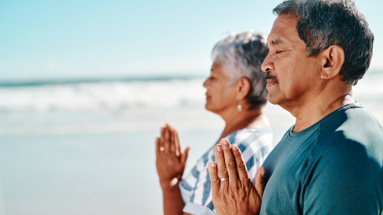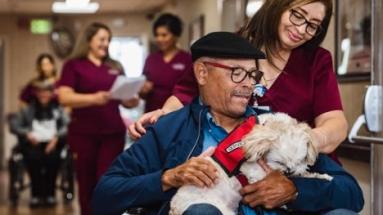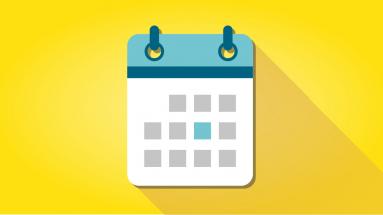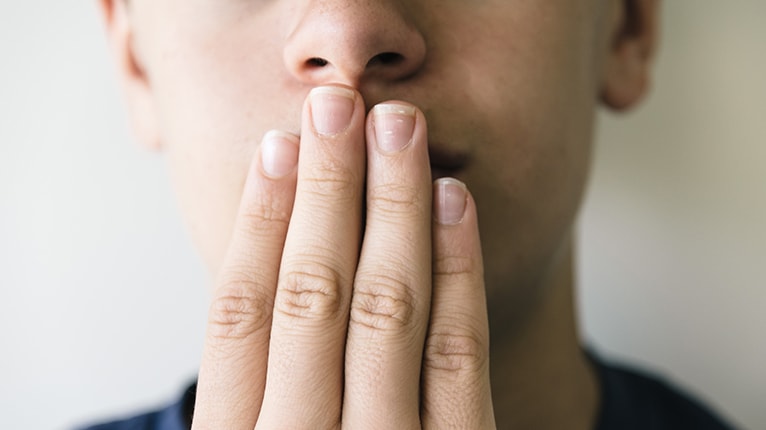Facing depression and anxiety while living with cancer

Cancer can have a profound impact on you, your loved ones and your caregivers. And you may feel grief, fear or anger. Sometimes, you might feel all of these things at once. At times, you may feel overwhelmed by these feelings, and you may not know how to deal with them.
Sometimes you have to just sit with it. It's real. The pain is real. The challenges are real. The fear is real.
It can be scary to admit you're having dark thoughts. You may feel ashamed or embarrassed, or you may want to shield your loved ones from these painful feelings. Judi, a spoken word poet, teacher and grandmother with stage IV thyroid cancer, found that the first step in coping with her feelings of grief, sorrow and anger was to acknowledge those feelings. "Sometimes you just have to sit with it," she says. "It's real. The pain is real. The challenges are real. The fear is real." In fact, ignoring, avoiding or denying these emotions won't make them go away. You may even find that the more you try not to think about these feelings, the larger they loom in your mind.
As many as one in four people with cancer have depression.
It's completely understandable for you to feel grief, sadness, fear or uncertainty when you're diagnosed with cancer. But if these feelings are constant, last a long time or prevent you from doing what you'd normally do on a daily basis, they may be signs of clinical depression or anxiety. If you have depression or anxiety after being diagnosed with cancer, you're not alone. It may help you to know that anxiety and depression are two of the most common symptoms experienced by people living with cancer. In fact, as many as one in four people with cancer have depression.
- There are many reasons why people living with cancer are prone to depression and anxiety:
- Your body may change as a result of cancer and treatment. Some of these changes may affect your body image, which in turn can have a negative impact on your self-esteem
- If you don't have as much energy for your friends, family, work or community as you did before your diagnosis, you may feel frustrated and you may also feel a sense of loss
- Physical symptoms like pain, nausea, extreme tiredness or fatigue may also contribute to depression and anxiety
- Fears and uncertainties about what lies ahead after your diagnosis can also play a big role
Signs to watch out for
Depression and anxiety may be issues you've dealt with over the course of your life—even before your cancer diagnosis. On the other hand, depression or anxiety might be unfamiliar territory for you. Either way, it may be helpful for both you and your caregivers to know what signs or symptoms to watch out for.
Common signs of depression
- Constant feelings of sadness, hopelessness or emptiness
- Loss of interest in most activities almost every day
- Major weight loss or gain
- Feeling slow or restless on a daily basis
- Extreme tiredness, fatigue or lack of energy
- Sleeping too much or too little
- Difficulty staying focused, remembering or making decisions
- Feeling guilty, worthless or helpless
- Thoughts of suicide
Keep in mind that cancer and some of its treatments may cause some of these symptoms. However, if you experience five or more of these symptoms almost every day for two weeks or more, or if the symptoms are severe enough to interfere with your daily life, these may be signs of clinical depression. Talk to your doctor if you're experiencing any of these symptoms.
Common signs of anxiety
- Constant worry or the feeling that things are out of your control
- Difficulty solving problems
- Trouble focusing
- Muscle tension
- Shaking or trembling
- Feeling restless or on edge
- Dry mouth
- Feeling irritable or having angry outbursts
If you're experiencing these symptoms almost every day, and these feelings interfere with your daily life, you may have anxiety. Be sure to talk with your doctor about these symptoms.
Panic attacks
Panic attacks can be another symptom of anxiety. A panic attack is when you are gripped by extreme fear. Often, a panic attack hits a person suddenly, lasts for several minutes and becomes most intense after about 10 minutes.
Symptoms of a panic attack
- Difficulty breathing or the feeling of being smothered*
- Fast heartbeat*
- Feeling lightheaded, faint or dizzy*
- Chest pain*
- Feeling of choking*
- Shaking or trembling
- Sweating
- Feeling out of control
- Feeling the need to escape
- Numbness or a tingling feeling
- Feeling "unreal" or "detached" from yourself
- Chills or hot flashes
*If you or a loved one has any of these first five symptoms, it could be a sign of an urgent or life-threatening condition, such as shock, a heart attack, a blood-chemistry imbalance, a collapsed lung, an allergic reaction or something else. Don't assume these symptoms are related to anxiety. Call 911 or a doctor immediately.
Finding ways to talk about your depression or anxiety
As with any serious health condition, the most important thing to do is to seek help from your healthcare team. Remember that many people feel overwhelmed, fearful, depressed or anxious when living with cancer. And there's no need for you to face these feelings alone.
I went through chemotherapy and radiation. I was also depressed, and I needed to treat that along with my cancer.
For Lynn, a loving mother and grandmother, finding out that she had stage III breast cancer was devastating. For three years, she had felt something wasn’t right with her health. She and her doctors tried to figure out what was wrong, and it took two biopsies before she was diagnosed. Afterward, Lynn kept asking herself, "Why didn't I speak up sooner?" She found it hard not to think about all those years that had gone by—years that she could have been treating her cancer. "I went through chemotherapy and radiation," she says. "I was also depressed, and I needed to treat that along with my cancer."
Talk to your doctor if you're experiencing any of the common symptoms of depression or anxiety. You may find it helpful to talk with close friends, family or caregivers first.
You might try a free app, LivingWith™, designed to help manage life with cancer. On the app, you can track mood, pain, sleep and steps and share this information with your loved ones and healthcare team.
Focusing on your mental health
Most healthcare professionals recognize how essential it is for people living with cancer to receive support for depression and anxiety. But unfortunately, many people still struggle to receive the help they need.
You and your healthcare team may already have a lot to focus on, from exploring different treatment options to going over test results to managing side effects. It can be hard to find time to talk about your feelings while also treating your cancer. But your healthcare team can't help you manage your depression or anxiety unless you tell them what you're experiencing. Remember, your emotional well-being is important, too.

















